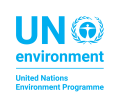Project Database

The South African-German initiative Skills for Green Jobs aims to improve the distinct, institutional and societal frameworks in order to provide qualified experts and adequate technologies for establishing a green economy.
On the German side, the Gesellschaft für Internationale Zusammenarbeit (GIZ) is carrying out the implementation on behalf of the...

The Skills Development for a Green Economy (SD4GE) Programme focuses on supporting the Dual System Pilot Project (DSPP) to help the Department of Higher Education and Training (DHET) to replicate dual occupational programmes. It is a pilot of an integrated dual training programme for electricians and plumbers: it will combine...


This project supports Mongolia and Central Asian countries in developing research capacity on inclusive green economy (IGE) development in Central Asia. The participating countries share socio-economic challenges and environmental issues such as land degradation, water scarcity, energy inefficiency, and waste production, and by facilitating South-South Cooperation, this project promotes the...

The Indonesian Green Entrepreneurship Program (IGEP) aims at supporting and building the capacity of ILO constituents and relevant national partners in Indonesia to better discuss and develop policies generating green, decent employment and environmental sustainability. IGEP is a set of multi-level activities helping to reduce poverty via sustainable economic growth...

By taking a tripartite approach, the project aims to provide ILO constituents and stakeholders with a clearer understanding of the distribution of green jobs across the economy, promote information exchange and social dialogue on green jobs policies, and identify potential entry points for further green job creation, thus help policy...
WiRES (Women in Renewable Energy Sector) is a project about women and green jobs. It was implemented in 2009 and 2010 by Adapt, the Association for International and Comparative Studies in Labour Law and Industrial Relations, in cooperation with its partners: the University of Szeged (Hungary) and the Union for...

The nationwide green sector strategy will identify the most suitable green job opportunities for the most vulnerable youth populations through a cross-matching based on the highest unemployment rates, the highest potential for green businesses and the availability of relevant actors from local authorities and the private sector. The strategy intends...

The project will contribute to stimulating investment and policy initiatives that promote Green Economy in Kenya. By doing this, it will enhance and support the existing and future national programmes on Sustainable Development, climate change and sustainable energy production.
The project comprises of the following components:
1) A Green Economy...
PAGE aims to contribute to the transformation of national economic structures in developing countries with the ultimate intention to achieve environmental sustainability, decent job creation, reduced poverty, and improved human well-being. PAGE is designed as a multi-year initiative that initially will deploy the expertise of its key partners to progressively...
